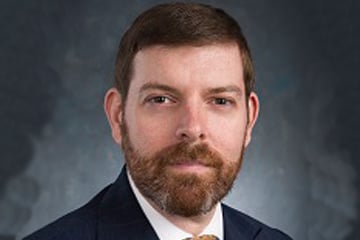
Law professor Ryan Alford was ordered to pay almost $10,000 in costs to the Law Society of Ontario after a judge decided a case about the law society’s Statement of Principles should be transferred to Divisional Court.

Law professor Ryan Alford was ordered to pay almost $10,000 in costs to the Law Society of Ontario after a judge decided a case about the law society’s Statement of Principles should be transferred to Divisional Court.
At issue in the July 9 decision, Alford v. The Law Society of Upper Canada, 2018 ONSC 4269, was whether the Ontario Superior Court of Justice had jurisdiction over the dispute between Alford and the law society.
Alford, who teaches at Lakehead University, brought an application to the Superior Court to challenge the law society’s authority to require the creation of a Statement of Principles. The LSO has told licensees that they would be required in 2017 annual reports to include a statement acknowledging an “obligation to promote equality, diversity and inclusion generally,” as well as in “behaviour towards colleagues, employees, clients and the public.”
According to the decision, Alford argued that his application was a matter of constitutional validity, which is inherently under the jurisdiction of the Superior Court. The law society said that the Statement of Principles mandate was an exercise of statutory power and thus subject to an application for judicial review in Divisional Court, the decision said.
Superior Court Justice Lise Favreau concurred with the law society, transferring the application to the Divisional Court to be heard as an application for judicial review.
“[It] is evident that, unless an application for judicial review is urgent, it must be heard by the Divisional Court. Therefore, the crux of the issue on this motion is whether the challenge brought by Professor Alford is an application for judicial review,” Favreau wrote in the decision. “In Ontario, the procedure for attacking decisions of public administrative bodies is by way of judicial review . . . in the absence of urgency (not a factor here), an application for judicial review is to be made to the Divisional Court.”
Favreau also ordered Alford to pay the Law Society $9,952.57 in costs within 30 days of the end of the application for judicial review.
“Convocation derives its authority to impose requirements on its members from the Law Society Act and from its general powers to manage its affairs,” Favreau said in the decision. “Ultimately, it will be for the Court hearing the application on its merits to decide whether the Law Society has the authority to require licensees to adopt a Statement of Principles, but there is no doubt that its decision to impose this requirement derives from the Law Society’s statutory powers.”
Law Society Treasurer Malcolm Mercer says the LSO is pleased with Favreau’s decision.
“It is important that this case be argued in the right court,” Mercer says. “Since Mr. Alford’s application is an application for judicial review, it properly belongs in Divisional Court.”
Alford sought a series of declarations from the law society, including a declaration that the Statement of Principles was beyond the law society’s jurisdiction to enact. Alford also requested the law society acknowledge the requirement was vague enough to be “inoperative” or a declaration from the law society that the requirement of the Statement of Principles infringes freedom of conscience and freedom of expression and does not “constitute a reasonable limit as can be demonstrably justified in a free and democratic society.”
Asher Honickman, partner at Matthews Abogado LLP who represented Alford, says they have not decided whether to seek leave to appeal. Honickman says Favreau’s decision doesn’t address his client’s right to choose a forum when a statute allows for concurrent jurisdiction. But, Honickman says, the core of the case is the release from the Statement of Principles, particularly surrounding Alford’s argument that the requirement of a Statement of Principles is an infringement on the Canadian Charter of Rights and Freedoms.
“We obviously think the decision is wrong on several points,” Honickman says. “But my client is really just anxious to get to the heart of the application, which is protecting the conscience and free speech rights of all Ontario lawyers and paralegals.”